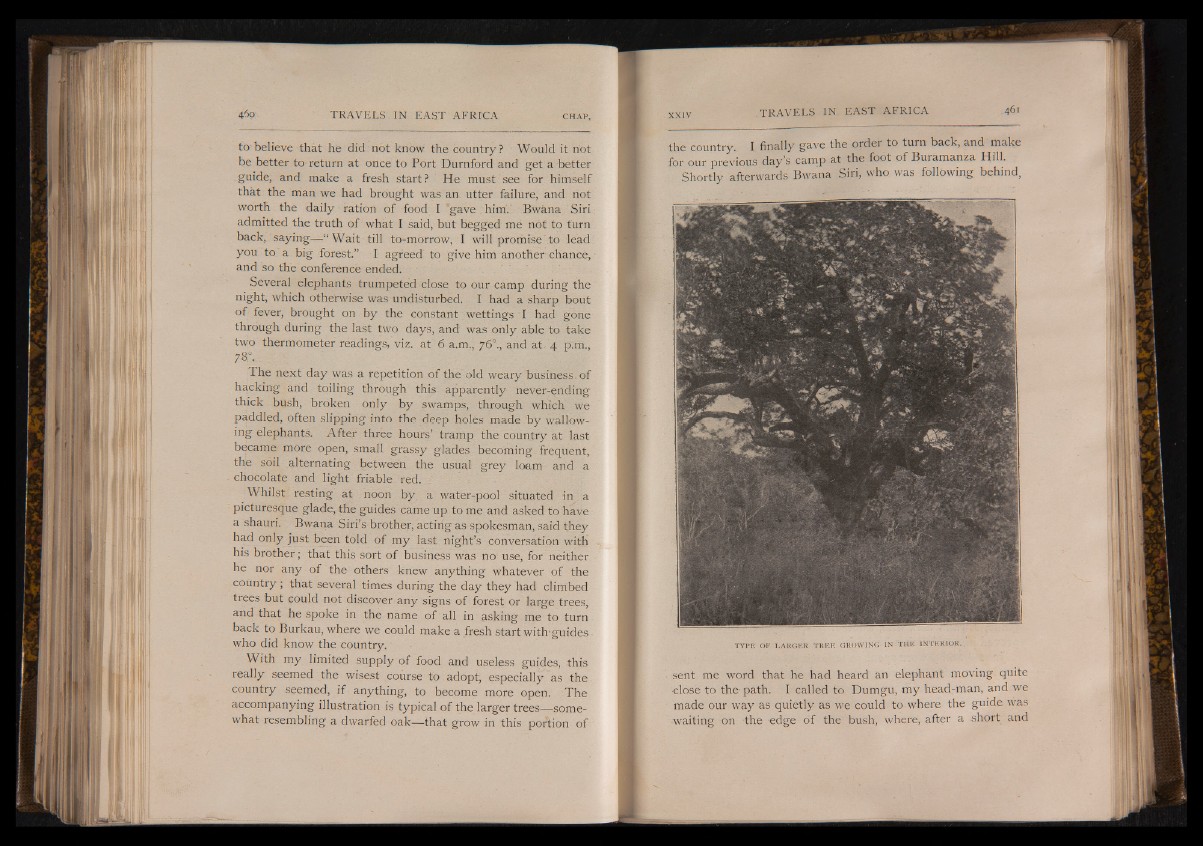
to believe that he did not know the country? Would it not
be better to return at once to Port Durnford and get a better
guide, and make a fresh start ? He must see for himself
that the man we had brought was an utter failure, and not
worth the daily ration of food I 'gave him. Bwana S ir i:
admitted the truth of what I said, but begged me not to turn
back, saying—-“ Wait till to-morrow, I will promise to lead
you to a big forest.” I agreed to give him another chance,
and so the conference ended.
Several elephants trumpeted close to our camp during the
night, which otherwise was undisturbed. I had a sharp bout
of fever, brought on by the constant wettings I had gone
through during the last two days, and was only able to take
two thermometer readings, viz. at 6 a.m., 760., and at- 4 p.m.,
7 8,°..
The next day was a repetition of the old weary business, of
hacking and toiling through this apparently never-ending
thick bush, broken only by swamps, through which we
paddled, often slipping into the deep holes made by wallowing
elephants. After three hours’ tramp the country at last
became more open, small grassy glades becoming, frequent,
the soil alternating between the usua.1 grey loam and a
chocolate and light friable red. ■
Whilst resting at noon by a water-pool situated in a
picturesque glade, the guides came up to me and asked to have
a shauri. Bwana Siri’s brother, acting as-spokesman, said they
had only just been told of my last night’s conversation with
his brother; that this sort of business was no use, for neither
he nor any of the others knew anything whatever of the
country ; that several times during the day they had climbed
trees but could not discover any signs of forest or large trees,
and that he spoke in the name of all in asking me to turn
back to Burkau, where we could make a fresh start witlvguides
who did know the country.
With my limited supply of food and useless guides, this
really seemed the wisest course to adopt, especially as the
country seemed, if anything, to become more open. The
accompanying illustration is typical of the larger trees— somewhat
resembling a dwarfed oak— that grow in this portion of
the country I finally gave the order to turn back, and make
for our previous day’s camp at the foot of Buramanza Hill.
Shortly afterwards Bwana Siri, who was following behind,
T Y P E OF L A R G E R T R E E GROWING IN TH E IN TER IO R .
sent me word that he had heard an elephant moving quite
close to the-path. I called to Dumgu, my head-rnan, and we
made our way as quietly as we could to where the guide was
waiting on the edge of the bush, where, after a short and